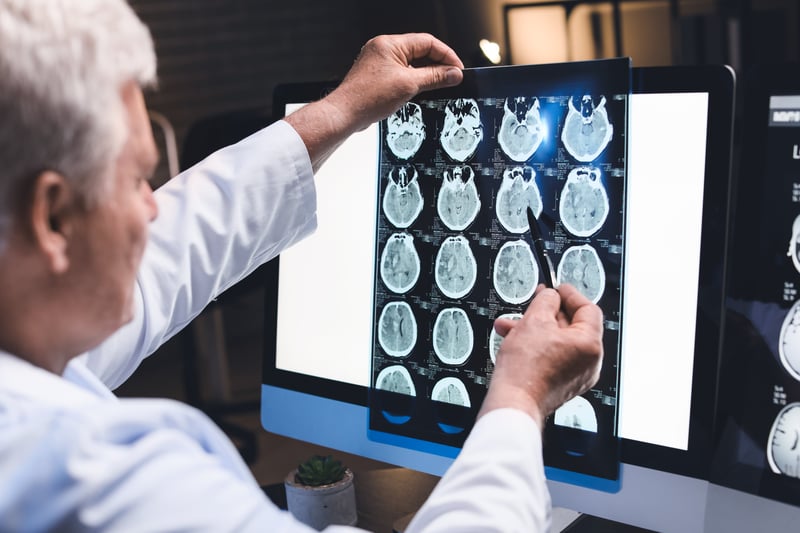Get Healthy!

- Cara Murez
- Posted September 22, 2023
Brain Trauma Could Help Trigger Heart Troubles
While the neurological impact of a traumatic brain injury (TBI) has long been studied, new research suggests TBIs are also hard on the heart.
The research team took a closer look at connections between the two organs, finding that nervous system dysfunction, neuro-inflammation, changes in the brain-gut connection and post-injury health issues may increase risk of both cardiovascular and cognitive (brain) dysfunction for TBI survivors.
Screening and preventive care may help offset these adverse outcomes, the researchers added.
"Despite decades of extensive traumatic brain injury-focused research, surprisingly, there has been minimal progress in mitigating long-term outcomes and [death] following injuries. The cardiovascular effects of TBI may be a missing link in advancing our efforts to improve long-term quality of life and reducing [death] rates in TBI patients,"said first study author Dr. Saef Izzy, of the Stroke and Cerebrovascular Center of Brigham and Women's Hospital, in Boston.
"We have the opportunity to identify and improve targeted screening for high-risk populations, build preventative care strategies and improve outcomes for survivors of TBI," he added in a hospital news release.
TBI is a leading cause of long-term disability and premature death, especially among military personnel and those playing contact sports.
While existing research has identified a strong link between TBI and various neurological conditions -- including Alzheimer's disease and dementia -- much of its effect on other diseases is still poorly understood, the study authors noted.
These researchers suggest that cardiovascular, cardiometabolic and endocrine dysfunction may contribute to neurological disease decades after a TBI.
High blood pressure, high cholesterol, diabetes and hypopituitarism can negatively affect brain function. These are established risk factors for dementia. They have also been found to be more prevalent in those with a history of TBI, as seen in more than a dozen studies on military personnel, athletes and the general patient population.
There are many potential links between TBI and cardiovascular and cognitive dysfunction, according to the authors.
Among them are that neuro-inflammatory pathways triggered by TBI could predispose people to hardening of the arteries. Weight gain and sleep disturbances after an injury might add more risk. And disruptions to connections between the nervous and gastrointestinal systems may throw off the balance of microbes in the gut.
The review was published online Sept. 20 in The Lancet Neurology journal.
"This review is a clarion call to conduct better assessments and earlier intervention for survivors of TBI who may have increased cardiovascular risk. It calls for new or expanded datasets that capture, over time, changes in biomarkers and targets associated with cardiovascular disease,"said corresponding study author Dr. Ross Zafonte. He is president of Spaulding Rehabilitation Network and chief of the departments of physical medicine and rehabilitation at Massachusetts General Hospital and Brigham and Women's Hospital.
Zafonte is also the principal investigator of the Football Players Health Study at Harvard.
"There is a growing recognition that many systems interact to produce multilevel dysfunction after TBI, with a series of nuanced co-morbidities. Clinicians can begin to treat some of these conditions, and in the future, management guidelines can more directly address the cardiovascular health of TBI survivors,"Zafonte said.
More information
The U.S. National Institute of Neurological Disorders and Stroke has more on traumatic brain injury.
SOURCE: Mass General Brigham, news release, Sept. 20, 2023







